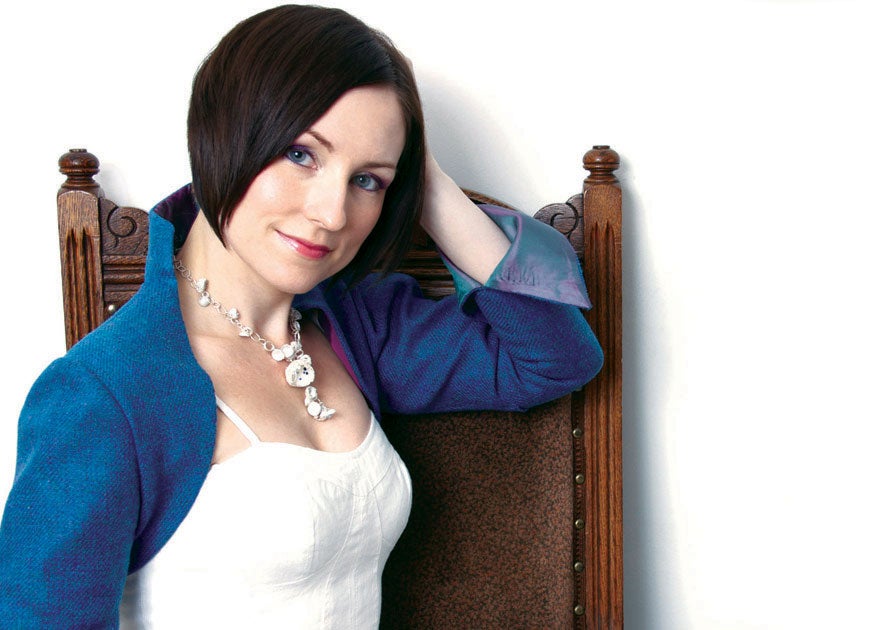Julie Fowlis: A song is an old friend, a real gift
The acclaimed Gaelic Folk singer speaks exclusively to The Independent about the importance of passing on traditional folk music

Your support helps us to tell the story
From reproductive rights to climate change to Big Tech, The Independent is on the ground when the story is developing. Whether it's investigating the financials of Elon Musk's pro-Trump PAC or producing our latest documentary, 'The A Word', which shines a light on the American women fighting for reproductive rights, we know how important it is to parse out the facts from the messaging.
At such a critical moment in US history, we need reporters on the ground. Your donation allows us to keep sending journalists to speak to both sides of the story.
The Independent is trusted by Americans across the entire political spectrum. And unlike many other quality news outlets, we choose not to lock Americans out of our reporting and analysis with paywalls. We believe quality journalism should be available to everyone, paid for by those who can afford it.
Your support makes all the difference.Traditional Scottish Gaelic folk singer Julie Fowlis, recently nominated for the Johnny Walker Blue Label Great Scott Awards 2011 and winner of the Folk Singer of the Year at the BBC Radio 2 Folk Awards 2008, speaks exclusively to independent.co.uk about the importance of traditional folk songs and keeping the oral legacy alive.
I’ve been singing in Gaelic since I was very young girl because I grew up in an area [North Uist] where it was an ordinary thing for us at school. It was a very ordinary thing, although it does seem extraordinary looking back at it.
I’ve always had in interest in music, mostly from my family. I went on to learn the pipes and the oboe and concentrated on playing instruments rather than singing, especially during my degree at the University of Strathclyde. But I always did a wee bit of singing on the side and that’s what I ended up focusing on.
I sing traditional songs that everyone else sings in the Hebrides. What’s new is that I go all over the world bringing them to new platforms. It’s great collaborating with professional folk musicians from different countries as I do for the Transatlantic Sessions BBC television shows and concerts.
There are so many traditional Scottish Gaelic songs that I could learn them for the rest of my life and still be far from knowing them all. I’m very lucky that I have a lot of family and friends who pass songs on to me. In that sense, I learn them in quite a traditional way.
People sometimes come up to me after a gig and offer me songs. It’s a great honour to be given a song like that. When someone gives you a song it’s like they’re giving you an old friend - a real gift.
Listeners who don’t speak Gaelic are always going to miss out on the story of the song. But I think they will understand the intention behind it.
The thing about Gaelic songs is that something very old and ancient in them resonates with modern culture. They come from a tradition that’s far bigger and far older than ourselves but still familiar.
People sang about love, work; difficulties like death and loss, tragedy. A lot of the songs from the Hebrides are influenced by the nature- the sea and the landscape. There was a great understanding of the wider environment and the world around them.
Not understanding the songs is certainly no barrier to listeners, but I think maybe a Gaelic speaker can appreciate more fully the beauty, the poetry, the rhythms and the imagery the songs conjure up.
As a society, we have so much to learn from the old folk songs. They are still in communities being passed on family to family. It’s all there, thriving despite the importance of different things in modern life.
As a mother I want to pass on the funny things, the simple things in traditional songs and stories which, I feel, have so much importance.
I speak to my daughter in Gaelic and my husband [Éamon Doorley, a member of Irish traditional group Danú] is an Irish speaker, so he speaks exclusively in Irish to her. She’ll be easily confused, you know?
Before television, people would gather round and tell stories and sing songs and history would be maintained that way. Things don’t happen like that anymore but we’ll try to keep the old stories and tales alive for our daughter. And hopefully for generations after her.
For information about tour dates visit juliefowlis.com
Join our commenting forum
Join thought-provoking conversations, follow other Independent readers and see their replies
Comments